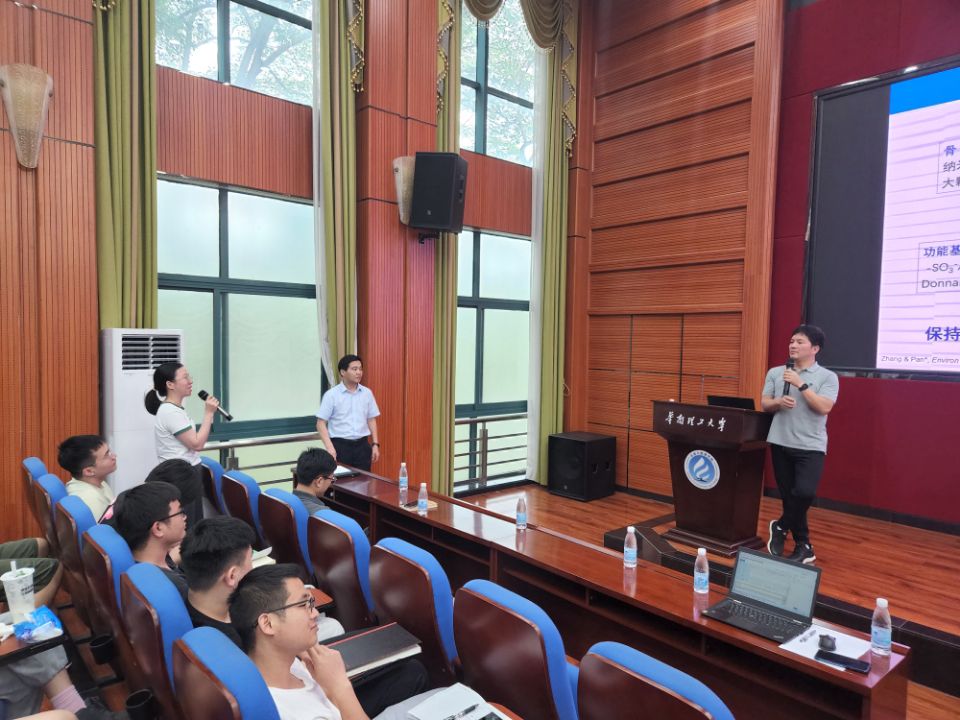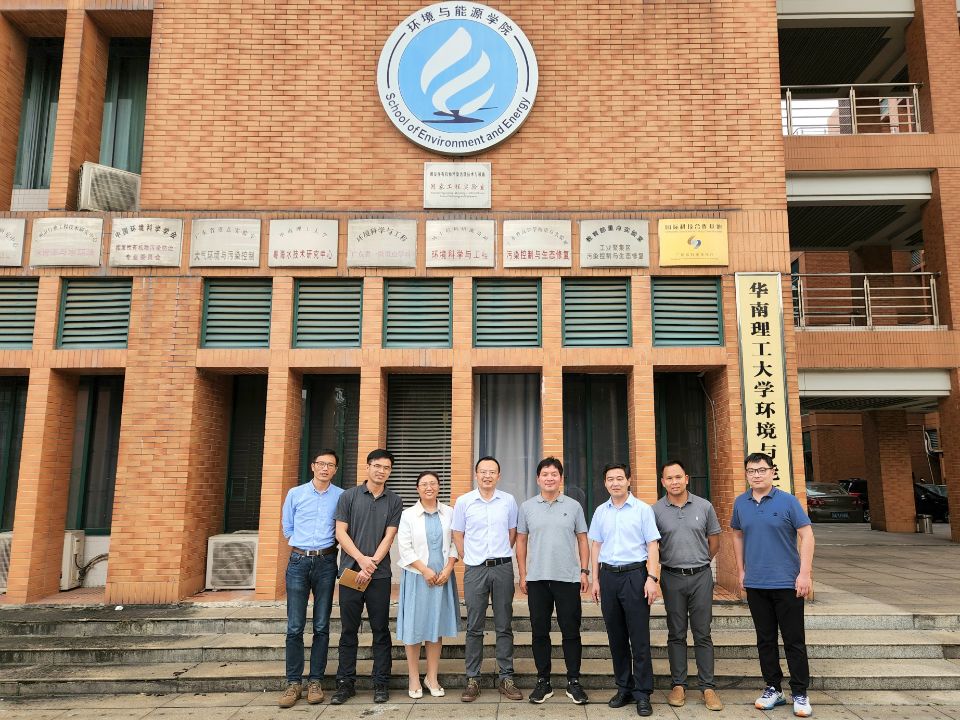

On the afternoon of May 19th, 2023, at the invitation of the School of Environment and Energy, Professor Pan Bingcai, Vice Dean of the School of Environment, Nanjing University, visited the school and gave an academic lecture entitled Challenges and Exploration in the Process of Practicalization of Water Treatment Nanotechnology in the Academic Lecture Hall in B4-215. The academic activity was hosted by Professor Zhu Nengwu, Executive Vice President of the School. More than 150 people, including academic leaders of relevant disciplines, young faculty members, Ph.D. and postgraduate students, were present to exchange ideas.
During the lecture, Professor Pan Bingcai retrospected his scientific research practice for nearly 20 years since he started the work, introduced the origin of the field of nano water treatment, and sorted out the research progress of advanced water treatment with nano materials. From the urgent need of advanced removal and/or recovery of key pollutants (such as arsenic, fluorine and phosphorus) in wastewater, he pointed out that the disadvantages of traditional nanomaterial technology (difficulties in operation, easy agglomeration and deactivation, environmental risks, etc.) have become challenges to its large-scale application. Professor Pan and his team focused on the conception and construction of composite nanomaterials, the analysis and utilization of nano confinement effects, technology development and practical application of nanomaterials, and illustration of non confinement effects on material growth, interfacial properties, phase transformation, catalytic oxidation and other processes. Professor Pan emphasized that the development of millimeter sized materials with nano confinement fine structures is a feasible strategy, an effective way and an important direction to bring advance nano water treatment technology to practical applications. He believed that there are still many unsolved mysteries in nanotechnology for advanced treatment of pollutants, and encouraged everyone to be bold and innovative to fill the gaps.

In the discussion session, Professor Pan Bingcai had an open and in-depth interaction with teachers and students, and gave patient and detailed answers. The presentation ended with a warm applause, and the participating teachers and students benefited a lot. This academic activity further deepened the exchange, cooperation and construction of related discipline fields between the two universities.

Introduction of The Speaker:
Pan Bingcai, Professor of Nanjing University, Vice Dean of School of Environment, Director of Research Center for Environmental Nanotechnology (ReCENT), Nanjing University, Deputy Director of National Engineering Technology Research Center for Organic Toxic Pollution Control and Resource Reduction, Professor of the Changjiang Scholars Program of the Ministry of Education, recipient of the National Science Fund for Distinguished Young Scholars, and a leading talent in science and technology innovation under the National High-Level Talent Special Support Program. He is also a member of the Science and Technology Commission of the Ministry of Education, deputy director of the Heavy Metal Pollution Prevention Committee of the Chinese Society of Environmental Sciences, editor-in-chief of CEJ Adv, editor of Chem Eng J, Front Environ Sci Eng and other journals, and editorial board member of Environ Sci Technol and Advances in Chemistry. He was the first chairman of the IWA-China YWP.
His main research directions are new technologies and principles of advanced water treatment, including water treatment nanotechnology and principles, advanced redox technology and principles, water quality analysis and evaluation technology. He has won the second prize of National Award for Technological Invention, the first prize of Technological Invention Award of Ministry of Education, the first prize of Science and Technology Award of Jiangsu Province, Guanghua Engineering Science and Technology Award, Jiangsu Patent Inventor Award, Georgy Barley Water Prize, etc.; he has published more than 300 papers in ES&T, Water Res, PNAS, Angew Chemie, Adv Funct Mater, Nat Nat, Nano Lett, Science China, etc., with more than 20,000 citations and a H-index of 78; he has been listed in Elsevier China Highly Cited Scholars List since 2014; he has been granted more than 160 patents at home and abroad.




